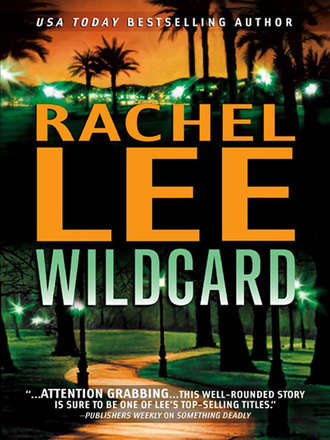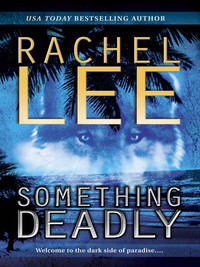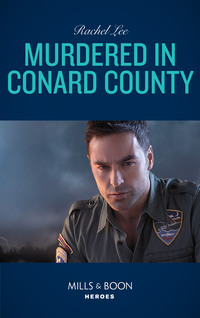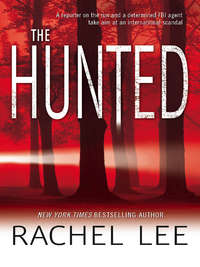
Полная версия
Wildcard
The day hadn’t begun so wonderfully, of course. The alarm clock had seemed especially rude, probably because he’d been called out late last night to visit a parishioner who’d been injured in an accident. The man’s injuries had not been as severe as he had feared, but Father Lorenzo had given him the Anointing of the Sick regardless. It was no longer reserved for persons on the brink of death.
After the alarm clock had intruded into a comfortable dream, he had risen to shower, shave and perform the same morning ritual that had anchored his days for nearly thirty years: celebrating morning Mass at his parish. Of course, with the priest shortage, he’d had to drive across town to a neighboring parish to celebrate Mass for them, as well. It was a small sacrifice, and he understood the need for it, but it did eat into his morning jogging time.
But the last hour had been his own. He’d left the rectory and headed for the waterfront, taking an easy pace past stately, antebellum mansions. It was the same route he jogged each day, four and a half miles at a comfortable eight minutes per mile. He no longer trained for races, though he’d done his share of ten-kilometer events and even a couple of marathons. That had been years ago, when he saw running as a mission, a contest between his body and his will. Now it was simply a joy.
Running was a solitary practice, and he’d more than once had to apologize to some parishioner who had seen him, waved and received no reply. The outside world existed only in soft focus, enough for him to avoid traffic and obstacles as his attention turned inward. Because of that, he almost missed the dark-haired man who waved to him from a park bench.
Almost.
In an instant, he became aware of the slight twinge in his right ankle, a pain that usually disappeared into the biological magic called “runner’s high.” The rhythm of his breath broke for just an instant, allowing the beginnings of a stitch in his side. He let out a soft curse and pressed on for the last half-mile to the rectory.
He didn’t need to be told what to do. He took a quick shower, changed into civilian clothes, told the parish secretary that he would be out for lunch and headed across town to a small diner near the university. Although he occasionally filled in at a nearby parish, he doubted any of those parishioners would recognize him without the clerical collar. Few people did, even from his own congregation, so fewer still would know a priest they had seen only once or twice.
The man was waiting for him, sitting in a booth away from the window, perusing the menu as if he actually cared what the lunchtime offerings might be. Father Lorenzo knew better. He doubted if the man would even eat.
“Hello, Father,” the man said as Lorenzo sat.
At least we’ll speak English, Lorenzo thought. Most of their discussions in Rome had been in Italian, and while Lorenzo was modestly capable in his ancestral language, he was by no means fluent.
“Hello, Monsignor.”
“I see you remembered,” the man said, with no trace of a smile, no trace of expression whatever on his strongly Roman features.
“It wasn’t complicated,” Lorenzo replied. “If I ever saw you in town, I was to come here within the hour.”
“Yes, well, for some things it is better not to use telephones. Even e-mail might be read by others, on my side of the Atlantic or on yours.”
Lorenzo nodded, hoping against hope that the overly dramatic words were merely preamble to a routine request. It would not have been unlike this man to do that. He was, after all, given to hyperbole. Still, the steady look in the man’s eyes did not convey the sense of over-inflation. This was serious.
“It seems our old enemies may be closer than we thought,” the man said. “We have intercepted some…disturbing communications.”
The man didn’t have to identify the enemies, nor the subject in question. Father Lorenzo had no doubt to whom and to what he was referring. Theirs was a cause to which he had dedicated himself in a solemn oath, even if at the time he’d deemed it ridiculously unlikely that the oath would ever compel him to action.
He was, after all, merely a parish priest of no great account. He had never imagined for himself a bishopric or cardinal’s red. He had never wanted such positions or the political responsibilities that accompanied them. He was content to serve God in the small ways, and his sabbatical in Rome two years ago had been simply an opportunity for a prolonged pilgrimage in the host city of his faith, a chance to breathe the same air and walk the same ground as Peter, Paul and countless other saints.
Instead, he had made the acquaintance of this man. A casual acquaintance, at first, born of the coincidence that this man had been born and raised in the same village from which Lorenzo’s great-grandfather had emigrated. It was one of those curious quirks of fate, destiny or Divine Providence—depending on one’s perspective—of which life was made. Over a dinner that would have pleased the Almighty, coupled with an Italian wine that might have been vinted by the angels themselves, they had discussed cousins, old family stories and, of course, their mutual vocation.
Like Father Lorenzo, this man had been gravely troubled by the emerging scandals in the American Church, and by the ways those scandals might undermine the Church’s mission and message. And, like Lorenzo, he saw an undercurrent of political prejudice in the timing and persistence of the media frenzy accompanying those scandals.
But unlike Lorenzo, he had expressed the belief that something could and should be done about the situation, and not only in terms of reforms within the Church.
“This is an ongoing battle that has raged for millennia,” he had said. “Sometimes openly, but most often in the shadows. The Church needs warriors. It always has. It always will.”
Their conversations had continued over the course of Lorenzo’s year-long sabbatical. Step by step, the man had offered a view of church history that differed from the official accounts in both substance and tone. It was a story of conflict, of a struggle against misguided but dangerous heresies within and ruthless enemies without.
Had he been at home, in the relative religious sterility of the everyday life, Lorenzo would have thought it absurd. But caught up in the fervor of Rome, where he could attend morning mass at St. Paul’s Cathedral and noon mass at the Basilica of St. Peter, where he could gaze at the Sistine Chapel, where every prayer seemed uttered from a half step closer to heaven, it had struck a chord. More and more, he had found himself nodding as he listened. More and more, it had made sense. In Rome.
Now, in a diner in Savannah, it seemed almost silly. And yet the man’s eyes were every bit as intense as they had been eighteen months ago, when Lorenzo had been walking through the catacombs. The man not only believed, he had the kind of moral certainty that Lorenzo found only rarely. A moral certainty in the faith, practice and future of the Catholic Church. The kind of certainty a priest could not easily ignore.
“The murder of your ambassador in Guatemala,” said the monsignor, shaking his head. “It has created serious problems. Problems we cannot afford to ignore.”
Lorenzo was familiar with the problems of Guatemala, having been posted to a mission there early in his career as a priest. For eight years, he had watched the people struggle with poverty, disease and war. Although they might not have understood all the reasons why, they knew the military dictator who ruthlessly wiped out one village after another was a CIA puppet. Anger was widespread, and the U.S. a common and, to Lorenzo’s mind, justified target of that anger.
Still, Lorenzo had no idea how that connected to the monsignor’s stated mission in life, or to his own vow.
“The rebels’ success will encourage others to make bold moves,” the monsignor said. “More people will die senselessly. It will be difficult for our allies to keep an eye on things that need watching. And our enemies will use that confusion to find what they are searching for and get it out of the country. That cannot happen.”
“The fabled Kulkulcan Codex,” Lorenzo said, his heart sinking.
“It might not be a fable,” the monsignor replied. “They have good information. They may be close to finding it. If it says what they think it does…”
He didn’t have to finish the sentence.
When Pedro Alvarado and Hernando Cortez led the Spanish conquest of Central America, they had found and destroyed the Mayan libraries, thousands of volumes setting forth the history, culture, religion and literature of that great people. Some archaeologists believed that as much as two thousand years of recorded history had been obliterated by the “cleansing” fire of the invaders.
Only a handful of texts had survived. The most prominent of those, the Popol Vuh, had been translated into Spanish from the Quiché Chichicastenango by a Dominican priest, Francisco Ximénez. Unfortunately, the Popol Vuh was only a fragmentary record of the Quiché Maya and their creation story. But even those fragments had disturbing correlations to the Bible. And when the Spanish had arrived, they’d also found symbols of the cross and stories of a god-man who had been sacrificed for his people.
Cortez had initially taken advantage of the legends that said the bearded, white-skinned god would return from the East, playing them for all they were worth, accepting as his due the title of Quetzalcoatl/Kulkulcan. But in the end, he was racked with guilt, wondering if he had betrayed God by playing God, wondering if he had stepped into a prophecy about Christ himself.
By themselves, the stories could be dismissed as native folklore and often were. But among the remaining poetry about Kulkulcan found in the Mayan book of prophecy called the Chilam Balaam, the Church found cause for greater concern:
When there shall be three signs on a tree,
Father, son, and grandson hanging dead on the same tree
The lost volumes, supposedly written by disciples, were rumored to have described the historical figure of Kulkulcan in detail, including his arrival in the early second century and his teachings. If copies of this Mayan codex existed, and if they said what they were rumored to say, Kulkulcan, also known as Quetzalcoatl to the Aztecs and Viracocha to the Incas, was none other than the firstborn son of Sara, the daughter of Mary Magdalene. None other than the grandson of Christ, descendant of a marriage the Church had denied for two thousand years.
Kulkulcan—a priest who claimed to be the son of the only god, who taught monotheism, peace and justice, who condemned human sacrifice and whose arrival catapulted a people to hitherto unknown heights of civilization—could well be the grandson of Jesus of Nazareth.
“What do you want me to do, Monsignor?” Lorenzo asked.
“Go back to Guatemala.”
“Are you mad?” Lorenzo asked. “Need I remind you that Americans are not popular down there right now? That was why I was removed in the first place, and it’s gotten much worse in the last fifteen years.”
The monsignor shook his head. “You still have friends there among the people. They will remember you. They will trust you.”
He leaned forward and looked into Lorenzo’s eyes. “Find the codex, Father, if it exists to be found. And if you find it, guard it with your life.”
6
Washington, D.C.
“Anything?” Miriam asked as Tom scanned the computer printouts spread across his desk.
“Maybe,” he said.
She’d been watching his growing excitement for the past hour and a half. She recognized the signs, the subtle cues of a born predator that has caught whiff of prey. These were the same facial tics, the same body posture, the same gleam in his eyes that had first attracted her notice. He had not been just another eager beaver law school grad who had signed on with the FBI. He’d had that air of a relentless hunter about him, even then.
“What do you know about sheep ranching?” Tom asked.
Miriam looked at him. “Are you back on that Idaho militia thing? I thought we’d dismissed them as cranks.”
Tom shrugged. “I decided to run the financials on all the groups. No stone unturned, eh?”
“I suppose,” Miriam said. “I’d feel better if I knew we were turning over stones in the right garden.”
“Well,” Tom said, “that’s just it. Most of the groups we’ve looked at are unfunded nutcases. Many of them aren’t even groups at all, judging by their financials. Turns out most of them are some lone wacko with a Web site and an inflated sense of his own importance.”
“But you found something in the Idaho financials?” she asked.
Tom nodded. “Maybe. I mean, have you ever been to a sheep ranch?”
“No,” Miriam said. “Have you?”
“Once, as a kid. School field trip.”
“And?”
“It was a small operation, like Dixon’s,” Tom said. “A lot of grazing land. The rancher showed us how his dogs rounded up the sheep, and the shearing shed, and so on.”
“And your point is?” Miriam asked.
“Why would a sheep rancher need a fleet of five Hummers? One, I can see. But five?”
“Employees? I dunno. Something to bounce over the pastures and round up the strays?”
Tom shook his head. “He’d use a horse or dogs. An SUV wouldn’t be agile enough. A sheep rancher might use a Hummer for riding his fences, or for towing, but neither of those is an every day or even an every week chore. As for employees, from what I can see, Wes Dixon doesn’t have a huge operation. It’s a small ranch. So why five Hummers?”
She held up her hands. “You’ve got me, Tom. Maybe he bought them for his militia?”
He shook his head, studying the printouts again. “Maybe. But they wouldn’t be all that useful for your run-of-the-mill citizens’ militia group, and a Hummer is an expensive SUV, even if it’s a base model rigged out for ranch work. He took out a loan for two hundred fifty thousand dollars to buy a fleet of five. And guess where he got the loan?”
Miriam’s heart skipped a beat. “His brother-in-law’s bank?” she asked.
“Bingo. Now, there’s no big surprise there. Edward Morgan is a nice brother-in-law, so he pulls a string or two to make sure his baby sister’s husband can get a loan for some new ranch equipment.”
“Why would he need to pull strings?” Miriam asked. “Couldn’t Dixon get a loan?”
“Like I said, the ranch is a small operation. And, judging by Dixon’s tax returns, not all that successful. I’d guess it would be hard to find some local Idaho banker to spring for a quarter million on a fleet of monster SUVs for a small-time sheep rancher. I’d be surprised if Dixon could get fifty grand to buy new stock at this point.”
Miriam nodded. “So Dixon’s wife talks to her brother, and voilà. New Hummers for all.”
Tom looked at her, once again shaking his head. “Not exactly. And that’s the interesting part. Dixon’s wife talks to her brother and gets a loan for new Hummers for all.” He paused for a moment. “But there’s no record that anyone ever bought them.”
“When was the loan?” Miriam asked, sensing where he was going with this.
Tom flipped through the printout. “Eighteen months ago.”
“So this wasn’t an ordinary car loan,” she said.
“Nope. The Hummers weren’t put up as collateral. In fact, I can’t find any security for the loan. Morgan’s bank just issued a check for a quarter million. And Dixon never bought the Hummers.”
“Payments on the loan?” Miriam asked.
“Not a one.”
“Dixon’s credit report?”
Tom held up another printout. “The loan isn’t even mentioned. Apparently the bank never posted it to the credit bureaus.”
“So what you’re saying,” Miriam said, “is that Wesley Dixon got an unreported loan for a quarter of a million dollars from a major New York bank with no collateral, and he’s made no payments.”
“And has no fleet of big, shiny new Hummers,” Tom added.
“So where’s the money?” Miriam asked.
“Not in his personal accounts. And I can’t find it in his business accounts, either. Or in the militia’s. Or any record that a sum like that passed through any of those accounts. But I’m no bookkeeper.”
She’d picked up the scent, just as Tom had. The scent of prey. She reined in her excitement. “You know this is a long shot, Tom. It’s a hundred to one—hell, a thousand to one—that this means what we think it might mean.”
Tom nodded. “But if it does, we might just have found the money that paid for the hit on Grant Lawrence.”
“That’s a stretch,” Miriam said. “Eighteen months ago… Would someone plan an assassination attempt that far in advance?”
But someone might, she knew. Her pulse accelerated. If someone wanted to make sure all the trails were really cold, they might well plan that far in advance. And Edward Morgan was a lifelong friend of Harrison Rice, who was now the Democratic nominee for president.
“It’s a helluva stretch,” Tom agreed. “And it’s probably exactly what I said last night. Horseshit. This Morgan guy wanted to bail out his brother-in-law’s failing business, so he jimmied up a loan to slip Dixon some extra operating cash. That’s probably all it is, right?”
“If it’s even that,” Miriam said. “He probably got the loan for the Hummers, discovered his barn was about to collapse or some such crisis du jour, and had to spend the money on that instead. And he kept it off the books to dodge the IRS.”
“It’s horseshit,” Tom said.
“It’s absolute horseshit,” Miriam agreed.
There was a long moment of silence. She knew what he was thinking. She was thinking the same thing. Yes, this was probably a waste of time and Bureau resources. But then again, their entire assignment was probably a waste of time and Bureau resources. At least this had a vague hint of illegality. Banking and IRS regulations, sure, and probably an innocent, well-intentioned, charitable violation, at that. But it was still far more interesting than the rest of what they’d read. And within the purview of the FBI.
“So you’re going to run it down?” she asked, forcing herself to sound casual.
“Damn right I am,” he said. “Any luck on those videos?”
She glanced at her watch, and both brows lifted. “Listen, we need to go to lunch.”
“Now?”
“Sure. Then we’ll be ready to dig into those files again.”
He grabbed his suit coat and without another word followed her. Miriam never did anything without a reason.
Rome, Italy
Monsignor Giuseppe Veltroni sat on a stair at the Trevi Fountain, watching the tourists. They came in all sizes, great and small, all colors of the human rainbow, and speaking the babel of dozens of languages. At this time of evening, however, the fountain was even more crowded than usual. The most irritating thing was the tour guide using a megaphone to speak to his flock in Japanese. The Japanese didn’t bother the monsignor, but the volume did. It nearly drowned out the soothing sounds of cascading water.
He himself was clad like the rest, or nearly so, in civilian clothes of slacks, windbreaker and jogging shoes. The air was chilly for spring. While the tourists looked comfortable, the monsignor was not. A creature of the Vatican, he vastly preferred his cassock. Even a clerical suit was preferable to this open-throated shirt. He missed his collar and felt deceptive without it. But privacy was his primary concern in this public place.
A pigeon alighted beside him and cocked its head, indicating a demand as clearly as if the bird had spoken. “I’m sorry, little one,” the monsignor murmured. “I have no food.”
Moments later the pigeon departed, joining its fellows across the fountain, where a young boy was scattering bits of cannoli. The flocking birds alarmed the child’s mother, and she whisked him away, leaving a trail of pastry crumbs in their wake.
Monsignor Veltroni returned his attention to the fountain. Begun by Bernini, it had been finished by Salvi, who earned most of the credit for the fantastic beauty of Neptune riding a seashell chariot drawn by winged steeds. The monsignor especially liked the winged horses. They appeared to rise right out of the fountain itself along with the water, as if emerging from the sea, and to his mind they carried a message of hope. Out of the darkness and depths we shall rise into the light….
The monsignor very much hoped he would rise into the light, which was the reason he was sitting here on this hard marble step, surrounded by people who tossed coins into the fountain to ensure their return to Rome.
A man sat beside him, a dark man, weathered hard by deserts and the suns of many years. They were a contrast, these two, the monsignor soft and pale from his duties, the other hardened and darkened by his. Yet they were players in the same game.
“You have difficulties,” the man said in flawless Italian.
Veltroni wondered how many languages the man spoke, having heard him converse in no fewer than four. Rome was an international city, and this spot a tourist attraction, so Italian was as private as any language they might have used. Certainly no less so than English, Veltroni’s only other language of competence.
“You requested a meeting to tell me something I already know?” Veltroni asked.
“No,” the man said, shaking his head. “I requested a meeting to offer you my assistance.”
Veltroni let out a short, silent, derisive laugh. “Thank you, but no thank you. The Church prefers to handle such matters itself.”
“The Church,” the man said, “doesn’t even know about this matter. We both know your group is not recognized by the Vatican. I doubt the Pope knows you exist.”
“The Holy Father has many responsibilities,” Veltroni replied. “He cannot have his finger on everything.”
“We both live with secrets,” the man said.
“You more so than I, apparently,” Veltroni murmured, “as you seem to know all of mine.”
These meetings always troubled him for that reason. More than once had he tried to pry open the wall of stone that shielded Nathan Cohen, if that was indeed his name. He had found very little. Certainly not enough. The man beside him was too much of a mystery, placing Veltroni at a distinct disadvantage. In this game, information was power.
“Like you, I am but a humble man of God,” Cohen said.
That part might have been true, though Veltroni knew this man was no rabbi. He doubted the man was even Jewish, although he sometimes presented himself as such. Rabbis operated within the structure of the Jewish community, and while that structure was not as rigid as the Catholic Church, neither was it anonymous. For a while Veltroni had wondered if the man was Mossad—Israeli intelligence—but discreet inquiries had ruled that out, as well.
“You don’t believe me,” Cohen said.
It was not a question.
“No,” Veltroni answered. “But you already knew that.”
“You tried very hard to locate me after our last little chat,” Cohen replied. “Your people are good, but…well…mine are better.”
“And who are your people?” Veltroni asked. “You’re offering to help in a confidential matter known to very few. I’m not such a fool as to believe that help would come with no strings attached. If I were to accept your offer, I’d want to know who I would be beholden to.”
Cohen looked up at the clouds for a moment, as if he were considering what to say, although Veltroni had no doubt he had long since rehearsed every possible move and countermove in this verbal sparring match.
“Is it not enough to say I am a man who thinks the world would not be improved by the chaos that would arise from these discoveries?” Cohen asked.
“No,” Veltroni said. “I am far too old to believe in convenient altruism.”
“You are a cynic, my friend.”
“I am a realist,” Veltroni answered.
“The defense of all cynics and depressives,” Cohen replied with a quick chuckle. “You don’t see the glass as half-empty. It simply is half-empty, correct?”
“Mockery is a dangerous game, Mr. Cohen. Even a dog tires of being poked with a stick. And I lack the saintly patience of that species.”









